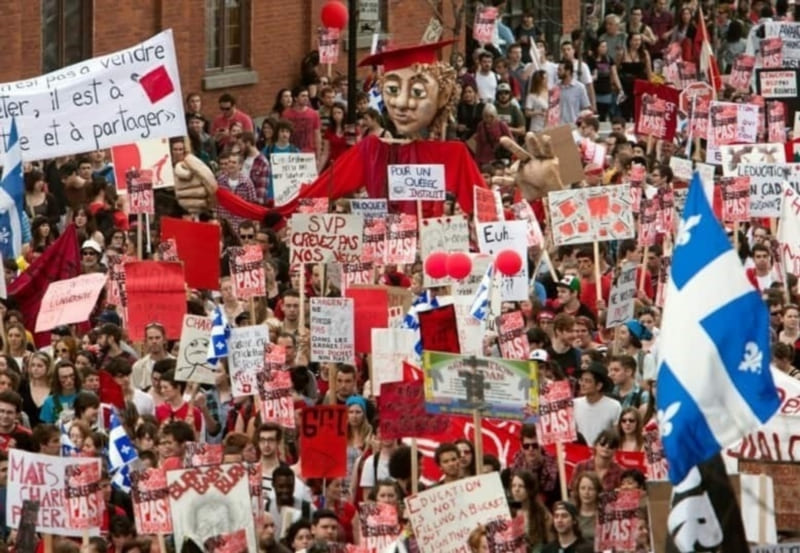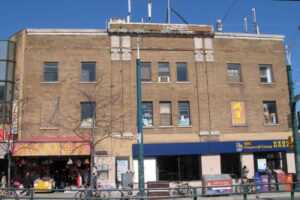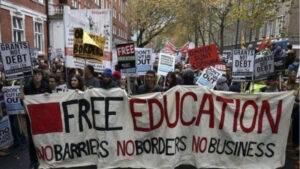The Backdrop: Why Student Protests in 2012?
2012 wasn’t just another year in the annals of student activism. All across the globe, it was a tumultuous time, and students, often seen as the vanguard of change, took to the streets. However, for this particular tale, our attention zeroes in on a seemingly small incident that nevertheless speaks volumes about the broader socio-political environment of the era.
Let’s dive deep, shall we?
Students, worldwide, have historically served as the fulcrum of societal change. From the ’68 protests in France to the Tiananmen Square incident in China, when students raise their voices, the world tends to sit up and notice. And 2012 was no different. A myriad of economic, political, and social issues served as a powder keg, with young blood ready to light the match.
But, what sets 2012 apart? In the age of rapid information dissemination and social media, the dynamics of protests and their coverage witnessed a paradigm shift.
Noteworthy Protests from the Era
- Occupy Wall Street
- The Arab Spring
- European Anti-Austerity Measures
And in this bustling milieu, a singular incident stood out – a CUTV cameraman arrested while filming a student protest.
The Role of CUTV in Covering Student Movements
Before plunging into the arrest incident, it’s essential to understand CUTV’s position in this narrative. So, what’s CUTV’s deal?
Take a peek.
CUTV, or Concordia University Television, was known for its grassroot-level coverage. They were no CNN or BBC. But in the realm of student activism, they were titans. Their vantage point was unique – being smack in the middle of student communities. This offered them an unparalleled perspective, a ringside view, if you will.
Why CUTV Mattered
- Voice of the Underrepresented: Often, major media houses might overlook student issues. CUTV filled that gap.
- Real-time Coverage: Their proximity allowed for real-time news dissemination, especially crucial in volatile protest situations.
- Unfiltered: Lacking the bureaucratic layers of big media, CUTV often presented news raw, unedited, and unadulterated.
This ethos often placed them right amidst the action, leading to our incident in question.
The Day It Went Down: CUTV’s Engagement with the Protest
So here’s the rub. A CUTV cameraman, just doing his job, found himself in the crosshairs of authority. But why?
The day was like any other in the life of a CUTV crew member. A student protest was on, and naturally, they were on the scene. Cameraman in tow, they aimed to capture the raw emotions, the fervor, and, more importantly, any untoward incidents that might ensue.
However, as the day wore on, tensions escalated. What was supposed to be a peaceful protest turned heated. Amidst the chaos, the CUTV cameraman was apprehended by the authorities.
Questions Arise
- Was the arrest warranted?
- Were there ulterior motives to stifle the media’s voice?
- Could the situation have been handled better?
These queries paint a larger picture of the constant tussle between authority and media, especially media entities that don’t always toe the line.
The Ripple Effect: Repercussions and Broader Implications
You might think, “Well, it’s just one cameraman. How big a deal could it be?” Hold onto your hats, because the implications were vast!
An arrest, especially in the midst of a protest, is no small matter. It sends a signal, not just to the media entity involved but to journalists at large. The message? “Tread carefully.”
Consequences to Ponder
- Chilling Effect on Journalism: Such incidents can deter journalists from covering contentious events.
- Freedom of Press Under Siege: The arrest raises pertinent questions about freedom of the press and their right to operate without fear.
- Public Outcry: The incident wasn’t just about CUTV. It resonated with a broader audience who saw it as an affront to democratic values.
In Retrospect: Lessons from the CUTV Incident
While the CUTV incident was but a blip in the vast landscape of 2012’s events, it serves as a potent reminder of several truths.
Time for some soul-searching.
Firstly, the importance of grassroot journalism cannot be stressed enough. Entities like CUTV are essential for a balanced media ecosystem. They offer perspectives that might otherwise be lost in the cacophony of mainstream media.
Secondly, the delicate dance between authority and media is a perennial one. Incidents like these underscore the need for constant vigilance and dialogue.
Lastly, in an age of ‘fake news’ and information warfare, the role of authentic, on-ground journalism is more crucial than ever. The CUTV incident is a testament to the risks taken by journalists daily, aiming to present the truth, unvarnished.
Key Takeaways
- The need for diverse media voices
- The perennial challenge to press freedom
- The undying spirit of journalism
To sum it up, the CUTV incident might have faded from collective memory, but its lessons are evergreen. It serves as a clarion call to protect journalistic integrity and uphold democratic values. Because, after all, a world without a free press is like a bird without wings – grounded, voiceless, and bereft of freedom.







